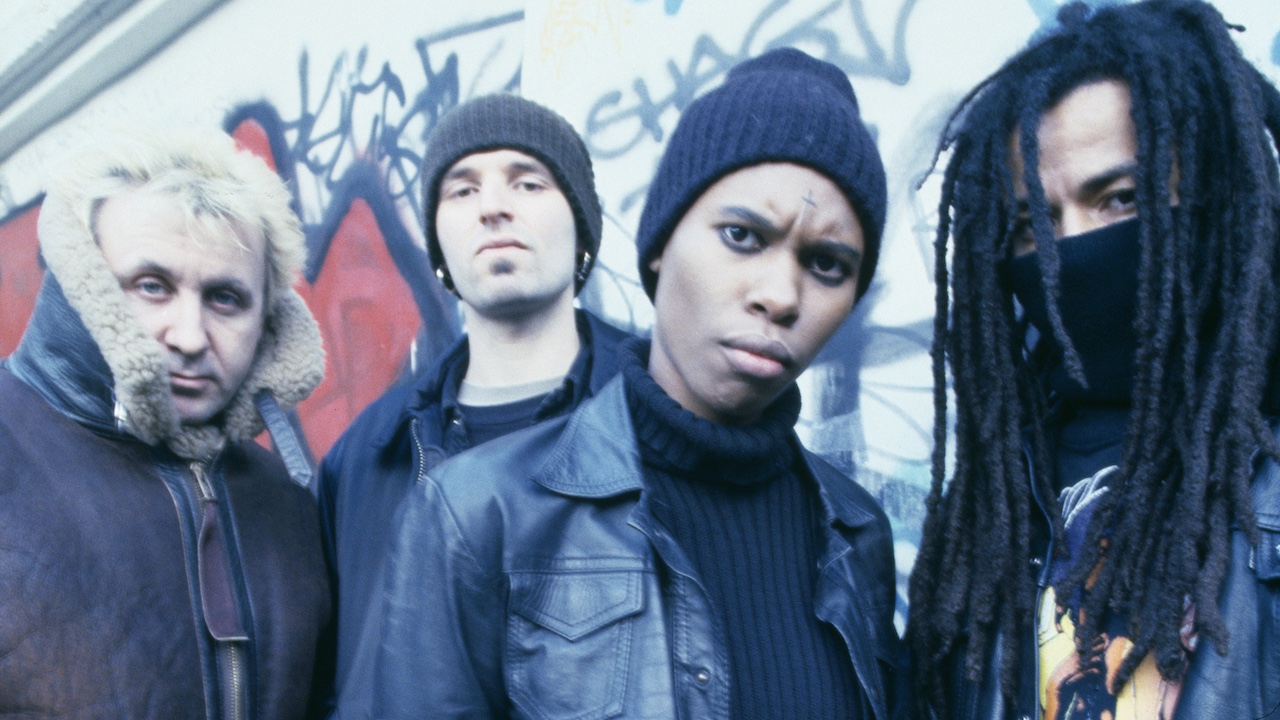Skunk Anansie are one of the UK’s most enduring rock bands, a group who have always reacted to never really fitting in to anything else going on around them by fiercely and furiously blazing their own trail. Over the years, their sound has taken in hard rock, metal, punk, post-punk without ever making itself at home, always restlessly pushing on. Take their decision to enlist art-rock and indie dynamo Dave Sitek, a collaborator of Foals, Solange, Santigold and more, on their forthcoming seventh record. Far from a usual choice for a heavy rock band but, for Skunk Anansie, not a huge surprise. Of course they decided to do that.
They have gone their own way since the beginning. It’s 30 years ago this month that they released their debut single Selling Jesus, a barbed, scintillating anthem that immediately set out their stall. It was the mid-90s and Britpop’s fixed grin was beginning to look a bit forced. Here arrived an antidote.
“We’ve had 50 years of the same crap government so there’s only one way to be, there’s a lot of aggression and frustration you feel with the political system in this country and the racism situation in this country is getting worse,” their mercurial frontwomen Skin told Roar TV at the time. “Every day you read the Nazi’s have done this, it seems to be growing and no one seems to be able to deal with it all and grab hold of what’s happening. Certainly this government isn’t going to do anything about it.”
Their music was steeped in a message from the off, whether it was taking on politics, capitalism, racism or sexism, Skin’s personal and pugilistic lyrics wrapped around huge, anthemic hooks. As their black, queer spokesperson, Skin had to deal with more than making herself heard in the boy’s club of 90s indie. “There’s a lot of racism,” she said. “A lot of the way people deal with other has come from not having any respect for other people’s differences. We’re not into the melting pot theory where everyone goes into a big pot and comes out the same colour, that means you lose loads of cultures. We’re into the salad bowl where to get a salad you put lots of different vegetables into the salad and that’s what makes the salad taste good.”
That helps to explain why the band were so determined to make a huge impact from the off. No pussy-footing around, no slow burn start, Skunk Anansie started searingly. “Selling Jesus came out like a cannonball,” Skin recalled in her excellent 2021 memoir It Takes Blood And Guts. The track came about, she wrote, when the singer stuck on the TV one morning and was greeted with the sight of an evangelist preacher in the midst of an over-excited grift. “He was asking for big donations for the Lord but as his hands moved, all I could see was his humongous gold watch glistening under studio lights. I thought, ‘People fall for this shit?’. I quickly scrawled in my notebook: ‘They want your soul, your money, your blood, your votes’. It was a testy song about how easy it is to exploit people’s beliefs in order to gain money and power.”
Released as the first taster from their huge debut record Paranoid & Sunburnt, which followed in September 1995, it was recorded the year before with Tool producer Sylvia Massy at the high-end, residential Linford Manor studio on the outskirts of Milton Keynes.
Skin recollects in her book how the plush surroundings were way out of her comfort zone, describing an anxiety-ridden period in which she struggled to replicate her live potency in the studio. A few home-made, ropey demos aside, the band had never recorded together properly. “I found the experience traumatic,” Skin remembered. “I didn’t know how to get a vibe without an audience. Linford Manor was almost too nice. We went from playing on sticky pub floors and eating dodgy food in the backstreets of King’s Cross to having a private chef and en-suite bathrooms in the lush British countryside.”
Encouraged by Massy, they did a bit of redecoration in the studio, purchasing a load of gear from an army surplus store and building a vocal bunker covered with slogans and with litter strewn across its floor. “A lot of the songs were political and it felt like war,” Skin said, a visit back home to her place in London helping her to get back in the zone when it came to nailing her vocals. Selling Jesus was one of the first tracks to be completed. “We recorded it as if we were playing live,” she said, “and the rest of the songs came more easily.”
It was the perfect introduction to Skunk Anansie. By the end of the year, they’d become the breakout stars of 1995. “Skunk Anansie is not only about politics,” Skin had said to Roar TV in an attempt to explain that there was something more multi-faceted going on with the band. “It’s not the only thing we talk about. We’re not this great political force kind of band, it’s one of the points to what we hav to say.” And then she neatly summed up what exactly Skunk Anansie were about at their core. “We don’t write love songs,” she said, “but we write hate songs.”


